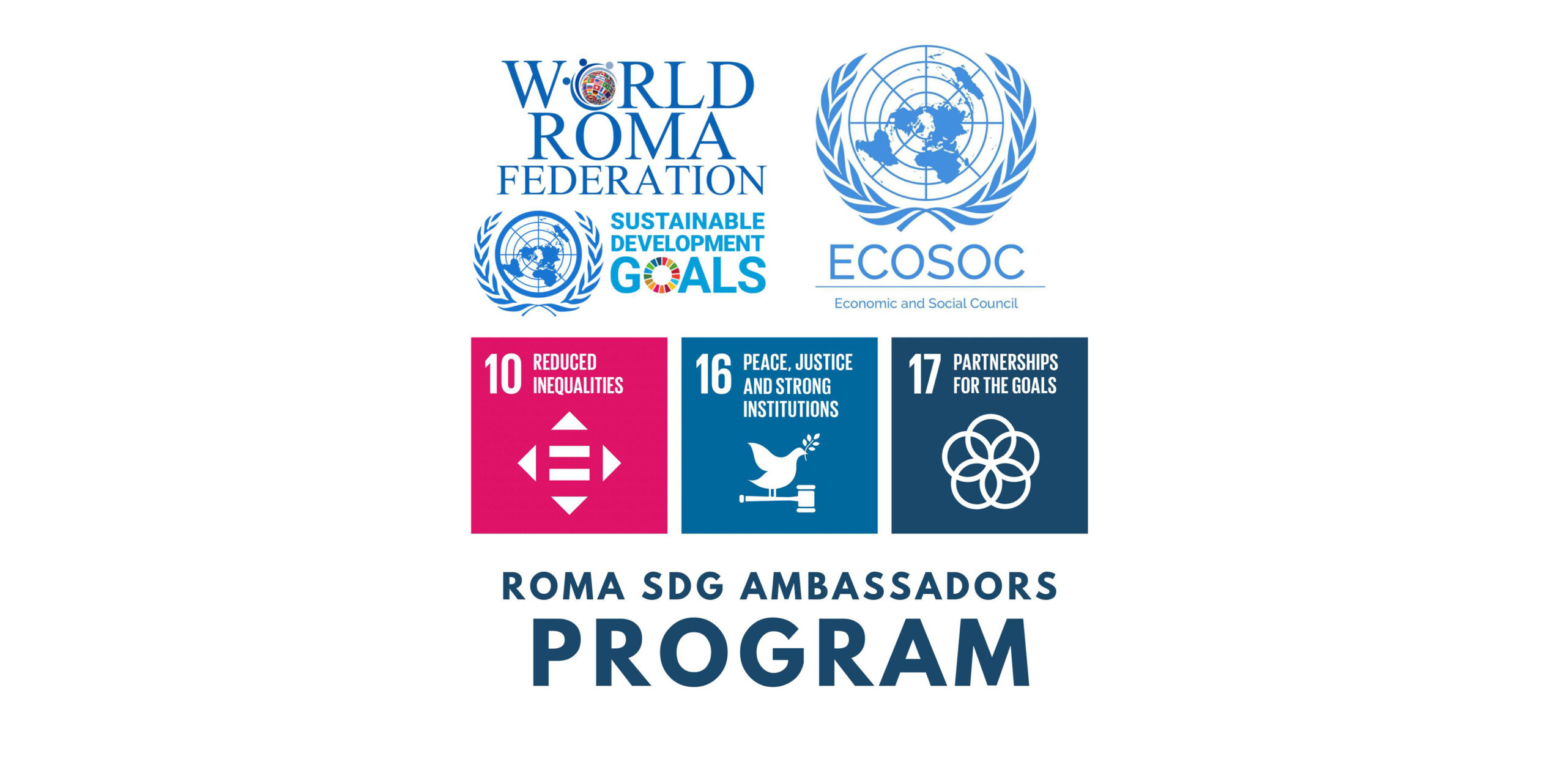The World Roma Federation, an organization led by Janos Sztoka Founder and President based in New York, who defends the rights of the Romani people has been making lots of progress in their awareness raising efforts in the U.S. For example, last year their Director of International Relations, Deny Dobobrov, was able to obtain a proclamation from the State of Illinois, Gov. JB Pritzker last year with wording similar to a pending senate bill S.Res 124 A resolution celebrating the heritage of Romani Americans. This is the first State in U.S. History to recognize Roma heritage, culture and history in the Holocaust and proclaim International Romani Day.
This year, yet another historical event is taking place. The World Roma Federation is forming an international coalition to form a Special Stakeholder’s Major Group at the United Nations New York Headquarters. “The OHCHR and most Human Rights related meetings, events and conferences usually occur at the United Nations center in Geneva, which makes it difficult for our organization to engage so we have appointed an Ambassador, H.E. Hassaim Bou Said of the IHRC Geneva, to represent our organization as our High Representative to the Human Rights Council. At the same time, we are trying to raise more awareness at the New York headquarters through engaging other civil societies, NGO committees and Major Groups, to support our upcoming Stakeholder’s Group who will represent the Romani constituency.” said Janos Sztojka, founder and President.
The World Roma Federation is also advocating for the formal recognition as a Stateless Nation or Non-Territorial State. In April of 2021, they began engaging governments seeking their support for this initiative.
Roma, singular Rom, also called Romany or Gypsies (considered pejorative), are an ethnic group of traditionally itinerant people who originated in northern India but live in modern times worldwide, principally in Europe. Most Roma speak some form of Romany, a language closely related to the modern Indo-European languages of northern India, as well as the major language of the country in which they live. It is generally agreed that Roma groups left India in repeated migrations and that they were in Persia by the 11th century, in southeastern Europe by the beginning of the 14th, and in western Europe by the 15th century. By the second half of the 20th century, they had spread to every inhabited continent.
Alternate titles: Calo, Cigány, Ciganos, Dom, Gitanes, Gitanos, Gypsy, Rom, Romany, Sinti, Tsigan, Zigeuner
“Roma are the most underrepresented people in the world. They very limited participation in decision making in most countries when it comes to policies on Roma issues. There are a few individuals who serve as members of parliament in Europe, however they were elected by non-Roma and do not have the mandate from the community to represent them in an official capacity. Of course, we welcome their advocacy, but they are far from elected officials of the Roma Community. We are in the process of developing a group who will have a special mandate in the High Level Political Forum (HLPF) at the UN, through ECOSOC and UNDESA. This group will be the first in history to be able to intervene at UN meetings, make recommendations and statements on behalf of the Roma people. Additionally, this year we are launching our lobbying campaign and asking Congressmen to form a caucus within the House of Representatives. So, we will be back in Washington DC very soon!” said Deny Dobobrov.
Because the Roma are a traditionally nomadic people, they have often been blamed for many evils by local populaces and majority groups and persecuted accordingly. This was most clearly shown during the Holocaust, when the Nazis murdered an estimated 400,000 Roma. This number is widely disputed, and many activists estimate that 500,000 to 1,000,000 were murdered.
According to the European Commission, “The Roma are Europe’s largest ethnic minority. Out of an estimated 10 to 12 million Roma living in Europe, approximately 6 million are citizens or residents of the EU. Many EU Roma are still victims of prejudice and social exclusion, despite the discrimination ban across EU Member States.”
With noteworthy exceptions, Roma were and continue to be broadly missing from elected bodies at local, regional, national and supra-national level. Participation of Roma in the parliaments of Europe is extremely limited. Only in certain parliaments of central and south-east Europe were Roma present, for example Bulgaria, Hungary, Serbia, “the former Yugoslav Republic of Macedonia ” and Kosovo, where the Ashkali and the Egyptian communities are also represented.
The years 2010 and 2011 saw major advances in the development of the European institutions’ explicit commitments to tackle the exclusion of Roma. The Council of Europe Strasbourg Declaration on Roma provides the political impetus to take concrete measures in this direction. The EU Framework for National Roma Integration Strategies up to 2020 also constitutes a move long sought after by Roma rights activists throughout Europe. On the other hand, there are troubling trends. European institutions responded with caution to policies evidently destructive of the fundamental rights of Roma in Italy and France. At a number of key moments, member states have rendered European-level calls to tackle Roma exclusion hollow, by openly flouting those expressions of concern. This fact has to a certain extent undermined efforts to emphasize the importance of inclusion for Roma.
“Unfortunately, just like every other nationality we have radical movements, self-proclaimed kings, monarchies and so-called parliaments without democratic elections. These individuals do not realize they are doing more harm for the Roma Rights Movement than they are doing good. We are trying to transition to a democratic election process and many of these radicals are against it because in Europe, Roma issues have become a huge business industry. Millions of Euros have been wasted on projects while the funds could have been used to combat poverty, hunger and homelessness but that’s a whole different story. Our priority now is to implement the Sustainable Development Goals (SDG) based platform we have developed for this” said Deny Dobobrov



